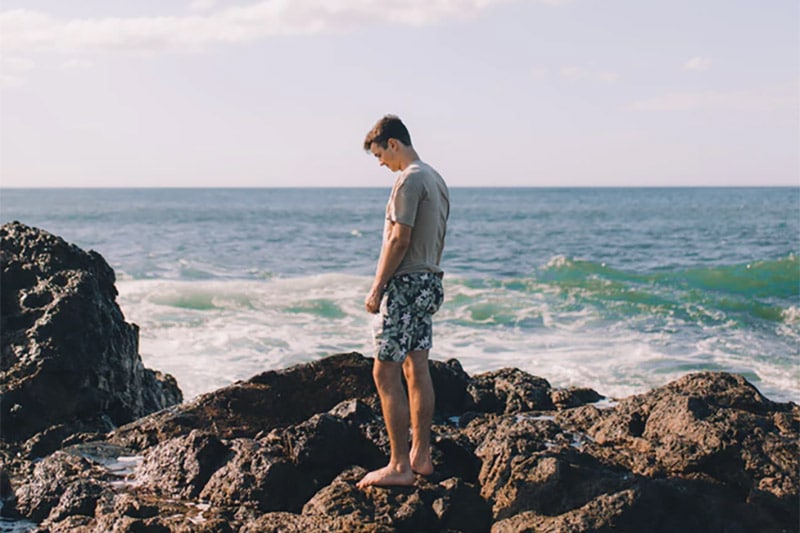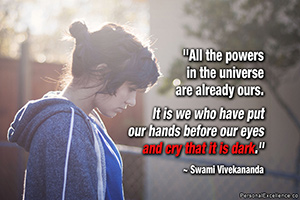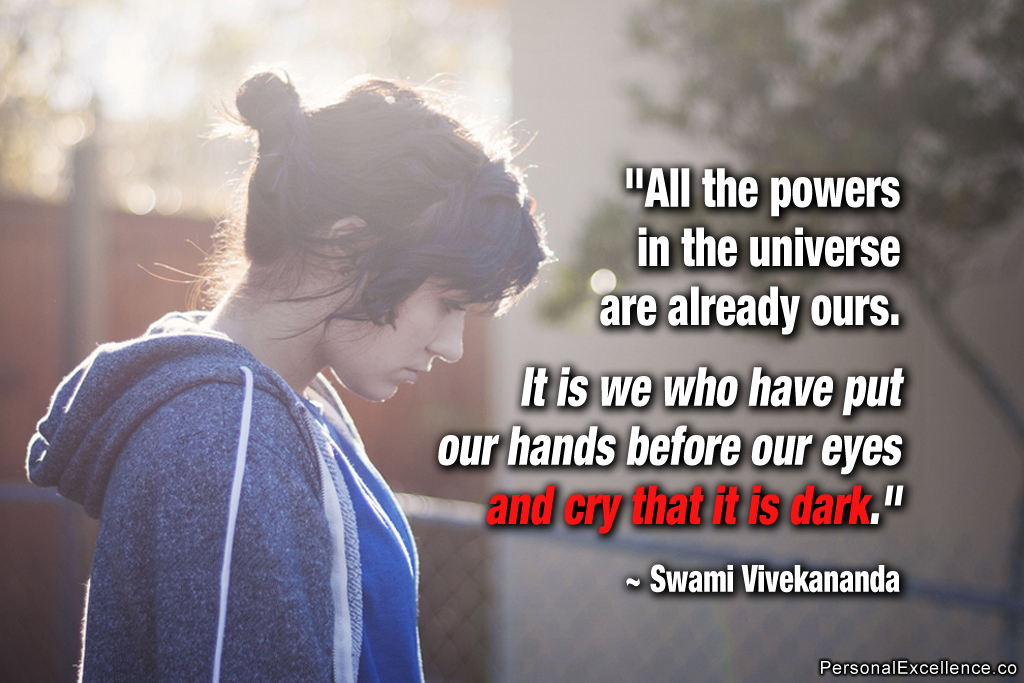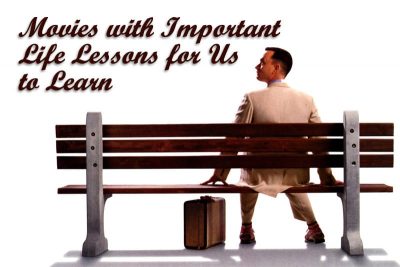
(Image)
“Firstly, I hope you will respect my wish for confidentiality and will therefore refer to me as ‘John.’
I have known that I have been bisexual (leaning towards men) for a while now. I have always wanted to keep it secret (because I don’t agree with bi/homosexuality), but it is becoming harder to do so. My parents don’t mind what or who I am, but I don’t want to let them or me down. Furthermore, a major issue is my social status. Both myself and my friends are seen as ‘cool’ and I worry they may discard me. We have gone to plenty of discos together, and I have been with a fair number of women in my time.
But in my heart and soul, I want to be with them. My straight best friends. Telling them might make them realize I like them and that isn’t a risk I’m willing to take. Another problem is my girlfriend. I don’t want to let her down. She is smart, funny and beautiful (a rare combo, I know).
My life looks perfect on the outside, but inside it’s a permanent battle. Please help me.” — John
Hi John, thank you so much for sharing this deeply personal problem. I see that there are a few layers to this problem, so let’s look at them one by one.
Your Social vs. Real Self
Let’s start with the central theme of your issue, which is,
- Who is John? Who is the real John?
- And does the real John correspond to the John that others know, the social side of you that you display to others?
I’m going to jump to the second question first, and the answer seems to be a “no” — no, the real John seems different from the John that others know. While most people have two sides — a real self and a social self where they show filtered aspects of themselves to others, especially to people they don’t know well, in your case this difference is so stark that it has made life a struggle.
That’s because firstly, the difference between your real self and your social self centers around a core part of who you are — your sexuality, which in turn linked to your relationships, what you can say, everything. While for other people, the difference between their real self and social self can be small things like being chatty in a social setting while being introverted on the inside, for you the difference is a fundamental part of who you are. Pretending to be chatty despite preferring to be quiet does not hugely affect one’s life other than that the few interactions with those friends. On the other hand, pretending to be straight when you are bisexual (and leaning towards men) affects you in more than just those few interactions. It’s a facade that you need to keep up with across all meetings and interactions. It affects your romantic relationships, what you can say to others, and who you can be.
Secondly, the reason we have a social self is to fit into social groups, especially when our real personality is very different from what is socially “accepted” or “welcomed.” That’s because individual social groups ultimately have their personality that may not fit with our real self. For example, I love talking about personal growth, how to live a meaningful life, and social issues that go beyond our individual selves. However, some of my friends have no interest in such topics and I don’t talk about such things when with them. I obviously my true, unfiltered self when with my husband and very close friends.
But for you, your social self is someone you show to everyone, including your loved ones. Your parents, your inner circle friends, and even your girlfriend, someone you are supposed to be the closest and most honest with.
While for most people, they are their 100% natural selves when with close friends and family, for you, you are your social self the whole time. Your social self has taken a life of its own and shaped your entire life around it. Instead of you being your real self with most people and showing your social self only in certain interactions, you are your social self the whole time and never your real self. There’s no “off” switch, so to speak. This is why life has become a permanent battle as you have no way to connect with the world as the real you.
Acceptance of Self
This brings me to my next point, which is something you said: “I have always wanted to keep it secret (because I don’t agree with bi/homosexuality).”
My question to you is, why? Why don’t you agree with bi/homosexuality?
While I don’t normally question people’s views on bi/homosexuality because everyone has the right to believe what they want, here I have to probe as your view on bi/homosexuality is intrinsic to your relationship with yourself. If you identify as a bisexual but you don’t agree with bisexuality, that’s a problem — a big, big problem.
Let’s look at various views on bisexuality (and homosexuality). For some people, they think of bisexuality as a choice, where people choose to be bisexual and they are simply deviating from “God’s intended design.” For some, they think of bisexuality as a result of a person’s biology, something they are born with and don’t get to choose. I believe most bisexuals/homosexuals can relate to this. Some may think of bisexuality as a state of mind, a result of people being experimental, and it’s something they should snap out of. And then there are religious and societal views, where some religions outright condemn bi/homosexuality and some conservative cultures deny its existence.
For me, I think humans are incredibly flexible — as much as we are biological beings, we have the ability to shape our lives in vastly different ways due to our highly developed minds. I believe that there are people who are born bisexual and it is part of their biology. I also believe that there are people who adopt a certain sexual orientation due to past childhood trauma and experiences, and it makes the most sense for them in this world. In the same vein, I believe there are people who are born with an open sexuality or bi/homosexual and become heterosexual to fit in (similar to what you are going through), just as there are people who are born heterosexual and hence stay heterosexual (since this is the default configuration of society).
All these don’t matter though, as it’s about your views on bi/homosexuality. I can understand if someone doesn’t agree with bi/homosexuality if he/she isn’t bi/homosexual — without walking a mile in others’ shoes, some people may not understand something that’s not in their day-to-day awareness set.
However, if you are bisexual and you don’t agree with bi/homosexuality, then why is that? Is it because of your religious beliefs? Is it because this is what you were taught growing up? Is it because this is against what society believes in? Is it because you don’t believe that this is biologically the right way for a human to be?
Whatever the reason, as long as you don’t agree with bi/homosexuality, you will forever be stuck in a self-battle. As Carl Jung said, “What you resist persists.” To achieve the state of self-acceptance, you need to uncover your resistance towards bi/homosexuality and work through it. Bisexuality is not something abnormal, just as homosexuality isn’t something abnormal. It is just different, something that most people don’t understand if they don’t have any bisexual/homosexual friends. Unless you accept yourself, all of yourself, it becomes an uphill battle trying to find happiness outside of you.
Who Are You?
This leads me back to the first question, which is, Who are you? Who is John?
Is John the cool guy often seen with his cool guy friends? Is John the guy with a beautiful, smart, and funny girlfriend? Is John the guy with a perfect life and a nice social status?
Or is John someone more than that? Someone who transcends these social definitions, who doesn’t need people’s perceptions to define who he is?
Even though you are afraid to tell your friends and girlfriend about your sexuality, you have to ask yourself: What it is to you, and why does it matter? Because if your friends are with you because you are seen as straight, and they may discard you when they know your true sexuality, then are these friends you want to stay with? Perhaps not, or perhaps they should be seen as social buddies rather than close friends. Because don’t you want to focus on friends who care about you as you, rather than friends who judge you based your sexuality?
With regards to your girlfriend, I do think that you owe it to her to tell her the truth as she is committing herself to you by being in the relationship. You have to ask yourself which is the more important value: being Truthful, or being Agreeable (not wanting to let her down)? If both of you decide that you are not right for each other, then it’s better to break things off now rather than waste her time and your time. You didn’t mention your ages, but a woman has a biological prime for childbearing, so if she is in a relationship with no long-term future, that’s time taken away from her dating journey. Whether or not having kids is what she wants, it’s important for her to know so she can decide what to do and whether she should further invest in this relationship. For you, I believe you want to be with someone you truly love and want to be with, which may or may not be your girlfriend (since you are with her under a concealed sexuality).
With regards to your parents, the great thing is that they don’t mind what or who you are. This means that the battle you are really fighting here is with yourself, as I shared above. If your parents don’t mind what or who you are, then why are you so bothered about possibly letting them down? What is it that you are “letting them down” in — is it from not being “like other sons”? And in terms of what, your sexuality? Why would having a different sexuality be a let down in any way? If it’s because of social stigma, I believe (given what you said) that your parents’ love for you is stronger than what society or religion says. Whether or not there is negative stigma from others, this is something that your parents and you can work through together, as a family. Just because you are fearful of societal’s views doesn’t mean that you should hide your sexuality from them — especially if you have an open, honest relationship with your parents to begin with. It’s about telling them the truth and then working through this together.
Bringing Your True Self to the World
What does this mean? Does it mean that you should just “come out” to the entire world?
Well, it depends. It depends on where you live and whether the society around you is ready. In certain conservative cultures, people outright condemn bisexuality and homosexuality. For example, same-sex sexual activity is illegal in India and sex between men is criminalized in Singapore (though this law is not actively enforced). In Singapore, The Pink Dot (an LBGT-affirming event) has faced many challenges in recent years as they try to spread awareness of the community to the broader society. Depending on where you live, you may have to be careful in how and who you reveal your bisexuality to.
But no matter what people around you think, you have to (a) achieve self-acceptance and (b) give your true self a way to connect with others, even if starting in a small way. Such as only revealing it to certain close friends and family members first. Such as connecting with like-minds online, albeit under an anonymous handle, like in pro-LGBT forums, Facebook groups (this would require registering a different Facebook account to stay anonymous), and commenting in pro-LGBT YouTube channels (also under a different anonymous Google account). In a way John, you are already letting your real self get heard by sending in this Ask Celes question, so I thank you for that. :)
While society may not be fully ready for you yet — the aspect of you that is bisexual (because it is different from the “default” configuration that is heterosexuality) — that doesn’t mean that you should do the same to yourself. Society generally moves at the pace of lowest denominator, which means there’s often a need to accommodate for conservative views and less progressive behavior patterns. For example, environmental groups have been highlighting for ages the damaging effects of plastic use, yet governments, commercial groups, and the average person continue to condone, use, and discard non-biodegradable plastic bags and cutlery in the name of profit and convenience. Despite the emergence of green cars, most people still don’t use them because the default cars on sale are cheaper and easier to purchase. Even online, we are weighed down by a low quality of conversation because there are always the 0.01% trolls and spammers generating a lot of noise.
What does that mean? Does it mean that you should only wait until everyone is ready and accepting of bisexuality/homosexuality before you accept yourself? No, of course not. What if this happens in only 50 years? Are you going to wait for 50 years before you can accept yourself and embrace your bisexuality? That’s terrible and also incredibly damaging to your mental well-being and growth.
My advice is this: Don’t wait for others’ approval or acceptance for you to be who you are. Start to accept and love yourself, all of you, including your bisexuality. Figure out what’s blocking in your acceptance of your bisexuality, and address that. The problem isn’t with your family and their views (as you said they don’t care who or what you are), your straight guy friends and their possible rejection of your friendship, or your girlfriend, but how you see bi/homosexuality and as a corollary, yourself.
As you work on your self-acceptance, decide who you want to open up to about your bisexuality. Your girlfriend for sure, because you owe it to her to tell the truth. Your parents possibly, because they are your parents and you said that they don’t care about who or what you are. Selected friends whom you can trust. Your straight guy friends — if you are ready and you want them to know. Alternatively, you can choose not to tell them about your true sexuality and continue to hang out as social buddies. But you should most definitely find new buddies who non-judgmental about different sexualities, because good friends are people who care about you as you, not your physical or social attributes.
As you work on your self-acceptance, you will stop being troubled by others’ perception of bisexuality and of you, even though these may continue to be obstacles in how you can connect with the world. For example, you want to share your bisexuality only with trusted people and if it’s safe to do so, depending on the social environment you live in.
Obviously, the best case scenario is to live as your true self and have the society accept you 100% as who you are, but the reality is often not perfect. It isn’t for many people, even for heterosexuals. Many people today live with limitations caused by factors outside of their control, be it where they are born, their race, the opportunities they were given growing up, genetic health problems they had no say over, or in your case, having a sexual identity that’s not as widely understood or accepted as the default sexual identity. In the face of these imperfections, it’s about finding an equilibrium between living life as best as you can and managing the imperfections. Rather than hate the world for what it is, or hate our lives for what is not perfect, let’s try to make the best out of what we have and manage the other things that are not that great yet. Because we can’t control the cards we are dealt with, but we can choose how we deal with these cards.
I hope this post has been helpful in some way and you are able to pick the right way forward for yourself. Keep me posted on how it goes okay? :)







 I hope you find my content helpful. Join my community of 65,000 readers and get my latest articles delivered to your inbox. Your email is safe and I never send spam.
I hope you find my content helpful. Join my community of 65,000 readers and get my latest articles delivered to your inbox. Your email is safe and I never send spam.
Commenting for this post is closed.